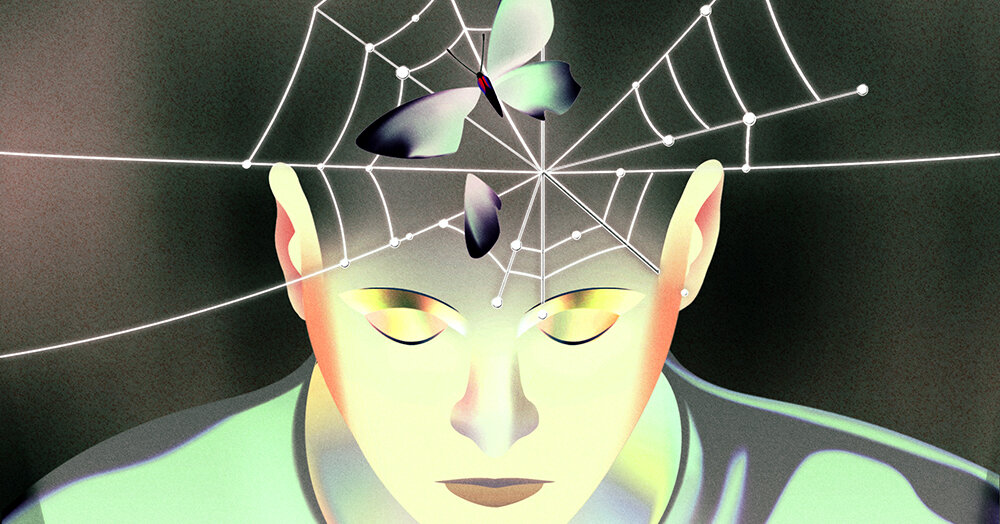Last spring, it became clear to me that over half the students in my large general education lecture course had used artificial intelligence tools, contrary to my explicit policy, to write their final take-home exams. (Ironically, the course was titled Contemporary Moral Problems: The Value of Human Life.) I had asked them about some very recent work in philosophy, parts of which happened to share titles with entirely different ideas in medieval theology. You can guess which topics the students ended up “writing” about.
My situation was hardly unique — rampant A.I. cheating has been reported all over the country. But I felt a dread I struggled to express until a colleague articulated the problem in stark terms: “Our students are about to turn subcognitive,” she said. That was it. At stake are not just specialized academic skills or refined habits of mind, but also the most basic form of cognitive fluency. To leave our students to their own devices — which is to say, to the devices of A.I. companies — is to deprive them of indispensable opportunities to develop their linguistic mastery, and with it their most elementary powers of thought. This means they will lack the means to understand the world they live in or navigate it effectively.
A.I. is hardly the first technology to threaten our cognitive competence. Long before ChatGPT, the smartphone and the calculator, Plato warned against writing itself. Literate human beings, he foresaw, would “not use their memories.” He was not entirely wrong. But few of us would consider this a bad bargain. The written word is, after all, the condition for the survival of these very same Platonic dialogues across two millenniums. Great gifts have often come at great cost. The question is always: Are they worth it?
As students’ A.I. use has proliferated, many of its critics focused on intellectual gifts. “A.I. undermines the human value of attention,” the poet Meghan O’Rourke wrote in a guest essay for Times Opinion, “and the individuality that flows from that.” Other endangered powers: “unique human expression,” “the slow deliberation of critical thinking” and the “ability to write original and interesting sentences.” As a humanities professor, all these concerns resonate with me.
Yet I have come to see that something far more fundamental is being put at risk. Developing our linguistic capacities — to master diverse concepts, to follow an intricate argument, to form judgments, to communicate those to others — is the development of our capacity to think.
For us human beings, using language is not a skill like any other — it is the way we do almost anything at all. Philosophers have disputed whether beings could exist that could think despite lacking language, but it is clear that humans cannot do so. We grasp the very contours of our world in and through language. But we are not born with a language. We have to acquire and develop our linguistic capacities through immersive practice with other human beings. For hundreds of years, in advanced societies this has meant cultivating an intimate familiarity with human writing.
Many people invoke a distinction between illicit uses of A.I. (such as the composition of entire drafts) and innocent auxiliary functions — outlining, for instance. But it is these seemingly benign functions that are the most pernicious for developing minds. Take the summary: Letting A.I. take over this rote task seems like a harmless shortcut. Sure, students who read only A.I. summaries will be subjected to predictable analysis and homogeneous prose, but they could save time and energy. In truth, the ability to determine what is being argued for and how is not dispensable. No aspect of cognitive understanding is perfunctory.
Without the chance to develop these capacities, young people would not be able to understand a news report, medical documents and consent forms or the merit of an argument (including this one). A depleted conceptual reservoir would render our lives crude and our experience of the world undifferentiated and coarse. Worst of all, cognitive degradation threatens our claim to self-rule: It is far from obvious that the denizens of the subcognitive society would be fit to participate in the democratic processes that determine how we structure our societies and lives.
Granting its potential downsides, many educators insist that widespread A.I. use in education is inevitable. A.I. enthusiasts such as Princeton’s D. Graham Burnett claim that literacy is a historical aberration, no longer fit for this world. Outside a few elite institutions, Dr. Burnett argues, there will soon be no point in asking students to read books. Teachers should instead ask students to “do stuff” with short texts: “Sing them. Memorize them. Cut them up into little pieces and stick them on the walls.” In other words, we ought to welcome a return to a society where functional literacy is reserved for the privileged few.
I bristle at Dr. Burnett’s blithe consignment of the majority of American college students to an education that seems better fit for kindergartners. And his claims are based upon a false premise. Many students can still read and engage with long texts — and want to. Just look at the half of my class who did that rather than use A.I. tools. And none of my students — whether they read the challenging texts I assigned them or not — would have been better served by using small bits of our essays for wall decoration instead.
Higher education aims to create cognitively mature adults, which in turn requires us to ensure students learn to read, think and write all on their own. It is easier than we think: Creating tech-free spaces and incentivizing students to spend time in them requires no new resources. All it takes is will. Many of our students still have it. Do their teachers?
Anastasia Berg is an assistant professor of philosophy at the University of California, Irvine. She is a senior editor at The Point and a co-author, with Rachel Wiseman, of “What Are Children For? On Ambivalence and Choice.”
The Times is committed to publishing a diversity of letters to the editor. We’d like to hear what you think about this or any of our articles. Here are some tips. And here’s our email: [email protected].
Follow the New York Times Opinion section on Facebook, Instagram, TikTok, Bluesky, WhatsApp and Threads.
The post A.I. Threatens Our Ability to Understand the World appeared first on New York Times.




